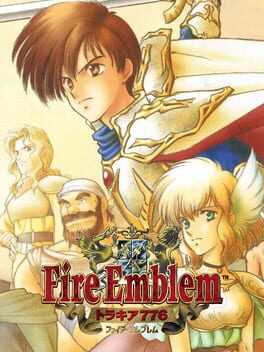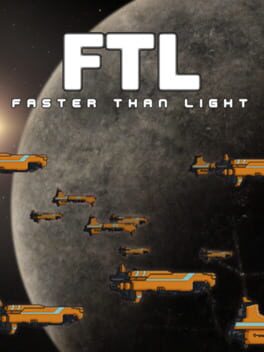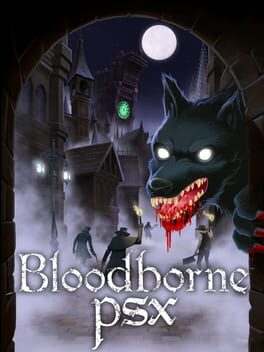apogee776
Bio
Nothing here!
Badges

Noticed
Gained 3+ followers

Gamer
Played 250+ games

N00b
Played 100+ games
Favorite Games
394
Total Games Played
000
Played in 2024
033
Games Backloggd
Recently Reviewed See More
Bloodborne is already a fantastic game. So any incarnation of it is destined to have a strong foundation to jump off of. But Bloodborne PSX does more than simply iterate. At first it serves as just a homage to Bloodborne and the Playstation. And it does this excellently, the models and the sound design stand out as incredibly well done. The models have the charm of early Playstation games like Resident Evil. I'd even argue that many of the designs of the monsters are scarier in this version than in the original as your mind fills in the blanks of what these things could be. And the sound design is beautifully compressed and visceral at the same time.
However, after the fight with Father Gascoigne, Bloodborne PSX decides to do its own thing. Taking after classic Playstation puzzle games, there is a mysterious new locale to explore using a series of keys and secret passages. This all feels nostalgic to an era I never grew up in but cherish nonetheless. The new areas fit into Bloodborne in such a way that someone who hadn't played the original could be forgiven for mistaking them as derived from it. The final encounter to the selection of new content is a wholly unique bossfight with an original score to accompany it. Out of the three included boss fights I think it the best. Which is a feat to be certain when you compare the years of design from a creative team on the original to a single dev's own mind in Bloodborne PSX. Gilbert, the Outsider is an expansion on the story of an NPC met early in Bloodborne. His boss fight is a cinematic marvel given the artistic limitations on the game.
Bloodborne PSX is a remarkable little game. It's independent developer, Lilith Walther, has made something striking. This is the sort of project that gets people attached to a developer. I know I am keeping an eye out for whatever her next project will be.
However, after the fight with Father Gascoigne, Bloodborne PSX decides to do its own thing. Taking after classic Playstation puzzle games, there is a mysterious new locale to explore using a series of keys and secret passages. This all feels nostalgic to an era I never grew up in but cherish nonetheless. The new areas fit into Bloodborne in such a way that someone who hadn't played the original could be forgiven for mistaking them as derived from it. The final encounter to the selection of new content is a wholly unique bossfight with an original score to accompany it. Out of the three included boss fights I think it the best. Which is a feat to be certain when you compare the years of design from a creative team on the original to a single dev's own mind in Bloodborne PSX. Gilbert, the Outsider is an expansion on the story of an NPC met early in Bloodborne. His boss fight is a cinematic marvel given the artistic limitations on the game.
Bloodborne PSX is a remarkable little game. It's independent developer, Lilith Walther, has made something striking. This is the sort of project that gets people attached to a developer. I know I am keeping an eye out for whatever her next project will be.
A simple yet beautiful game. In the short time it took me to get through this narrative it made me cry multiple times, even in its first 5 minutes. As a transgender woman who has always struggled with the anxiety of navigating women's spaces I found a kindred soul in Haru's experiences, words, and thoughts throughout the story. Although I can see how one can interpret the story as a hugboxing, saccharine, feel good story, I find there is a lot of truth in Haru's experience.
Haru herself is a typical transgender woman a few years into her transition. She seems to pass relatively well and her friends and family seemingly accept her as Haru. However, it is made clear that she has not fully legally or medically transitioned. Her legal name, for example, is still her deadname. Haru, like most trans women, is clearly insecure about her perception from the world around her and existentially terrified of making other women uncomfortable. It is that anxiety that the game’s first and honestly, most resonating ending is the result of. If Haru declines Manami’s offer to go to the hot springs the game ends as Haru is unable to take the leap and risk discomfort in pursuit of companionship with her friends and social integration as a woman. On a first playthrough, this immediately brought me to tears. I’ve had conversations that felt identical to that one, my fear and anxiety stopping me from feeling like I belong alongside the cis women in my life. Most of the other endings are far more optimistic but made my eyes water all the same. My favorite of them all is Erika Ending 2, in which Haru spends time alone discussing her own problems with Erika and explaining the dilemma of transness to someone willing to hear her out.
I think the strength of this narrative lies not just in Haru but in her two friends, Manami and Erika. They reflect two different perspectives that the outside world may have on transgender people. Both ultimately kind and supportive but flawed in their delivery.
Manami is a vehement trans ally to Haru, views her as a woman, and would do anything for her. But it is abundantly clear she does not understand why Haru acts the way she does, she does not understand how crippling dysphoria and social anxiety can be for transgender people, and at first refuses to learn. She doesn’t want to pry into Haru’s identity and make her uncomfortable and therefore, cannot truly understand her.
Erika on the other hand is far more inquisitive and blunt. She is clearly supportive and kind to Haru but does not know how to navigate conversation with a transgender woman. She stumbles over herself and makes a few coarse comments that would make any transgender person uncomfortable. But it is her curiosity that in the end causes her to understand Haru far more than Manami ever had. Her sympathy allows her to sit and listen to Haru rather than simply refusing to engage and just accept her as a woman unconditionally. In their conversation alone, Erika learns more about Haru’s identity in one night than Manami has in years.
These opposing methods of support create a compelling dichotomy that explores the tribulations that transgender women in particular experience even from their strongest allies. Stories like this one really resonate and feel truly empathetic to the trans experience. I have never experienced a narrative like this before, and it's truly helped put a lot of my own thoughts into order about my own identity.
Haru herself is a typical transgender woman a few years into her transition. She seems to pass relatively well and her friends and family seemingly accept her as Haru. However, it is made clear that she has not fully legally or medically transitioned. Her legal name, for example, is still her deadname. Haru, like most trans women, is clearly insecure about her perception from the world around her and existentially terrified of making other women uncomfortable. It is that anxiety that the game’s first and honestly, most resonating ending is the result of. If Haru declines Manami’s offer to go to the hot springs the game ends as Haru is unable to take the leap and risk discomfort in pursuit of companionship with her friends and social integration as a woman. On a first playthrough, this immediately brought me to tears. I’ve had conversations that felt identical to that one, my fear and anxiety stopping me from feeling like I belong alongside the cis women in my life. Most of the other endings are far more optimistic but made my eyes water all the same. My favorite of them all is Erika Ending 2, in which Haru spends time alone discussing her own problems with Erika and explaining the dilemma of transness to someone willing to hear her out.
I think the strength of this narrative lies not just in Haru but in her two friends, Manami and Erika. They reflect two different perspectives that the outside world may have on transgender people. Both ultimately kind and supportive but flawed in their delivery.
Manami is a vehement trans ally to Haru, views her as a woman, and would do anything for her. But it is abundantly clear she does not understand why Haru acts the way she does, she does not understand how crippling dysphoria and social anxiety can be for transgender people, and at first refuses to learn. She doesn’t want to pry into Haru’s identity and make her uncomfortable and therefore, cannot truly understand her.
Erika on the other hand is far more inquisitive and blunt. She is clearly supportive and kind to Haru but does not know how to navigate conversation with a transgender woman. She stumbles over herself and makes a few coarse comments that would make any transgender person uncomfortable. But it is her curiosity that in the end causes her to understand Haru far more than Manami ever had. Her sympathy allows her to sit and listen to Haru rather than simply refusing to engage and just accept her as a woman unconditionally. In their conversation alone, Erika learns more about Haru’s identity in one night than Manami has in years.
These opposing methods of support create a compelling dichotomy that explores the tribulations that transgender women in particular experience even from their strongest allies. Stories like this one really resonate and feel truly empathetic to the trans experience. I have never experienced a narrative like this before, and it's truly helped put a lot of my own thoughts into order about my own identity.







